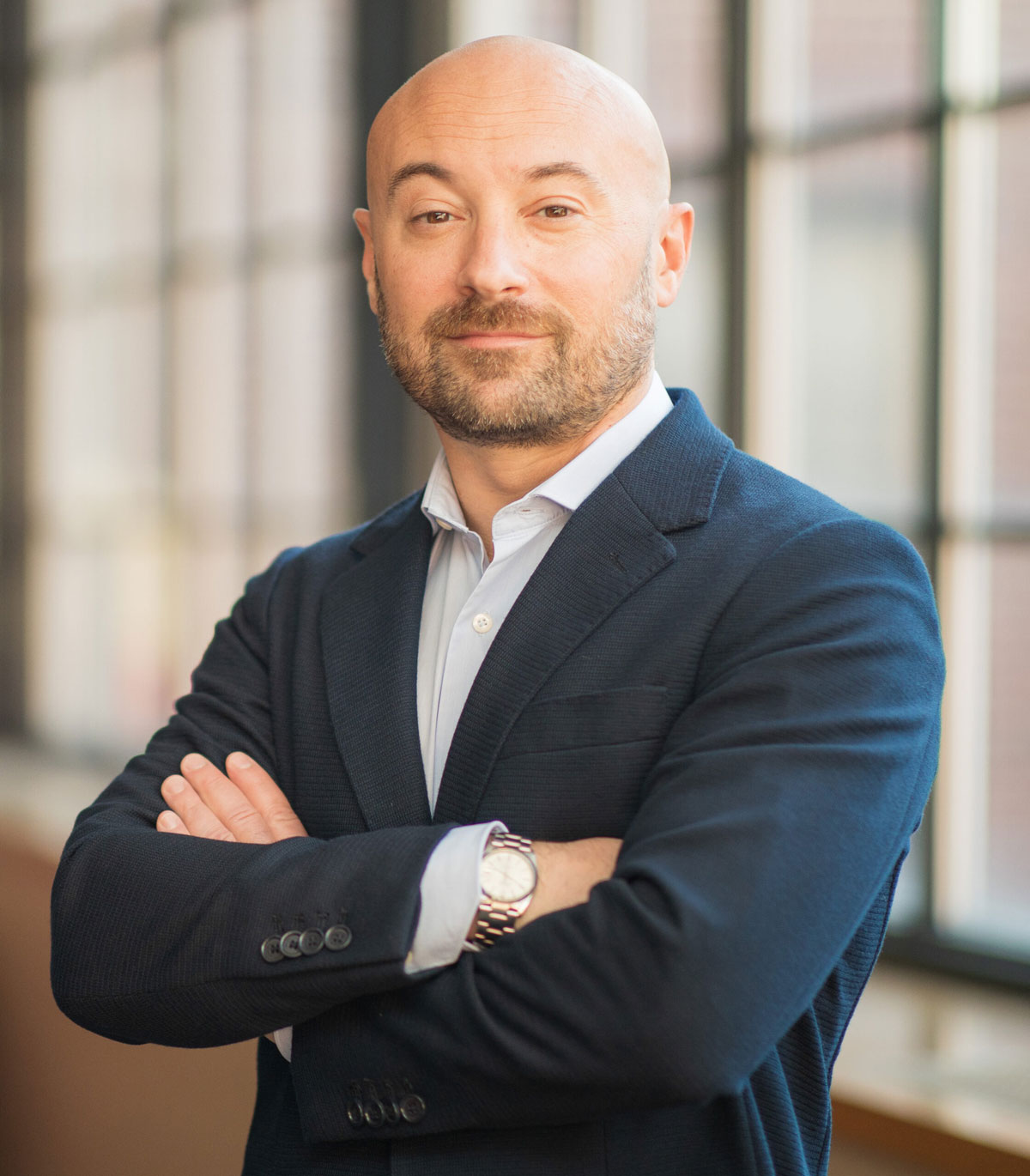UW Medicine researchers test vaccines for opioid addiction

Marco Pravetoni. Photo courtesy of UW Medicine.
Drs. Jürgen Unützer and Marco Pravetoni are scientists and researchers whose professional lives are ruled by rigor, discipline and a passion for improving the lives of patients. At the same time, the Department of Psychiatry & Behaviorial Sciences colleagues are visionaries in the development vaccines and other novel treatments for opioid use disorders and overdose, among the deadliest of public health problems in the United States.
Pravetoni, a professor of psychiatry at the UW School of Medicine, has invested more than a decade of his career to pursuing the development and translation of vaccines and other antibody-based treatment strategies that have eluded scientists for more than half a century. He’s so close, he can see the outcome of these efforts: “I’m very excited about how far we have made it. I’m confident this will be a game-changer in the treatment of opioid use disorders.”
For Unützer, the psychiatry department chair and director of the Garvey Institute for Brain Health Solutions, the investment was the $2 million he staked for this vital work and the recruitment of Pravetoni away from Minneapolis in January 2022.
“Marco has raised about $20 million in federal funding to support translation of monoclonal antibodies against fentanyl overdose since he’s come here,” Unützer says. “What that says is there are very smart scientists now at the National Institutes of Health and at the National Institute on Drug Abuse who have recognized this really is a very promising approach. So we made a little bit of a gamble, but I think we’re validated in that.”
Monoclonal antibody-based treatments for substance use disorders and opioid use disorders could reach the market in five years, and vaccines for a multitude of addictive substances could be a decade away, Pravetoni predicts. That will require commercial investment, which will require more proof his methods can work. He and his colleagues have begun Phase One clinical trials of the first human oxycodone vaccine and are preparing to petition the U.S. Food & Drug Administration to allow human trials for vaccines targeting heroin, fentanyl, and their analogs or metabolites. His team also is seeking to initiate manufacturing of the monoclonal antibody treatments meant to complement Narcan, the only FDA-approved overdose reversal agent.
“These treatments would be incredibly powerful,” Unützer says. “They could help millions of people, and the work that he’s doing is at a fairly critical stage. He has proven in his laboratory that vaccines and antibodies can protect against some of the negative and dangerous effects associated with opioid misuse and overdose. The question now is: Can you do it in a human?”
Addiction is one of America’s biggest public health problems, and there are few solutions to the crisis. The National Insitute on Drug Abuse says more than 100,000 people died from drug-induced overdose each year from 2020 to 2022. The psychiatry department’s Addictions, Drug & Alcohol Institute says overdose deaths in Washington state have increased 30% year over year from 2019 to 2020 and ’20 to ’21.
Although treatment and understanding have evolved quickly, there are really only two ways to treat addiction: drugs that block or replace the effects of misused substances, and psychotherapy and psychosocial approaches. These methods are imperfect and not widely used. A vaccine would allow psychiatrists to attack the problem in a different way, blocking the effects of opioids and other substances such as methamphetamine with drug-specific antibodies over a sustained period of time. In the context of overdoses, a monoclonal antibody could be administered alongside naloxone to save lives.
“This could really be a third pillar of treatment,” Pravetoni says. “Imagine antibodies as a sponge, and the sponge is going to mop up all the drug available. That will diminish the amount of drug that can actually get to the brain, which is a very different approach. We are not the first to come up with the idea of vaccines or monoclonal antibodies for addiction or overdose. But we are the first group to reach clinical trials with an opioid vaccine. And we are one of the very few groups in the U.S. that has funding to advance monoclonal antibodies for fentanyl overdose to clinical trials.”
The team advanced the understanding of the processes involved last fall when it released several papers identifying novel vaccines and monoclonal antibodies and their mechanism of action against fentanyl and other relevant target drugs. It hopes to start clinical trials for fentanyl and heroin vaccines in 2024. Pravetoni thinks it made perfect sense to bring his cross-disciplinary work to Seattle, where UW Medicine sits at the intersection of high-tech and person-to-person approaches to modern medical problems.